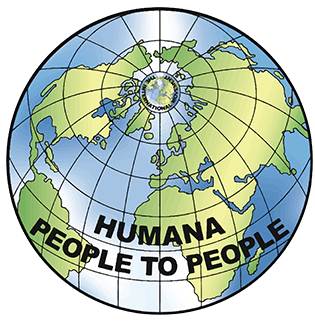Literacy improves farming skills
 For many young people and adults, non-formal education is the main route to new learning. DAPP Malawi and its partners have been conducting adult literacy classes in the communities in order to empower the most disadvantaged rural farmers.
For many young people and adults, non-formal education is the main route to new learning. DAPP Malawi and its partners have been conducting adult literacy classes in the communities in order to empower the most disadvantaged rural farmers.
Marita Nkosi from Fuse Village in Traditional Authority Mkukula in Dowa district is one proud woman farmer, who has no regrets for joining the adult literacy classes happening in her community.
Previously she confesses that she was among the illiterate many. “We could not be able to read, write or count and because of that my home was poor, hungry and with no financial capacity to afford the basic necessities”.
But after undergoing adult literacy training and budgeting among other areas, she claims her life is completely reinvigorated.
“Our lives have changed for the better. We are now able to go to the markets to conduct business without any trouble. We are also able to account for our finances when we are buying or selling our farm products,” says Marita Nkosi.
Marita Nkosi, who is a member of Tikondane Women Farmers Club says last harvesting season, for instance, realized close to 200 bags of maize and 22 bags of soya beans.
The mother of four says she expects to receive about MK150,000 (approximately 250$) from a village savings facility, which the group established after receiving training from DAPP Malawi.
“These savings help us to buy fertilizer and other household needs. Through the same savings, I have managed to send one of my girls to school up to form four,” she says.
Marita disclosed that through the DAPP Malawi Farmers’ Clubs, women have received various skills including livestock management, conservation agriculture and climate change adaptation skills.
She adds, “We are happy that farmers have tapped the skills and are able to use them and transform their lives. Farmers are able now to produce enough for their household consumption and surplus for sale.”
Integrating adult literacy within farming programs has been decided after realizing the high illiteracy levels among the adult population and the hindrances that puts in the way of farmers becoming more successful in their production. Additionally, it is supporting the United Nations Sustainable Development Goal number 4 which seeks to achieve quality education for all and adult education being one of the key targets.
According to UNESCO, “Learning to read and write is a fundamental right. Yet, 38 % of African adults (some 153 millions) are illiterate; two-thirds of these are women.” Africa is the only continent where more than half of parents are not able to help their children with homework due to illiteracy. Most people, who stays in the rural communities of Sub-Saharan Africa and participate adult literacy training are women. As most of the rural women source their own livelihood through carrying out subsistence farming, there is need to mainstream adult literacy within agriculture based interventions to better the impact of the program effects.
The Federation Humana People to People, which DAPP Malawi is a member of, developed the Farmers’ Clubs program to develop capacity of rural farmers in developing countries to improve farming and get increases in yields, conserve the environment, adopt financial literacy as well as get better bargains when selling the surplus agro-produce at the local markets.
The inception of Farmers’ Clubs in Malawi in 2006 has been done with in-cooperation of adult literacy to better basic reading and ability to exercise basic numeracy skills. The simple literacy skills have gone a long mile in aiding the financial planning, budgetary management as well as market bargaining for prices to ensure gain on selling agro-produce. Farmers’ Clubs Women in Dowa is one DAPP Malawi project which is carrying out adult literacy among its active farmers.
September 2016

